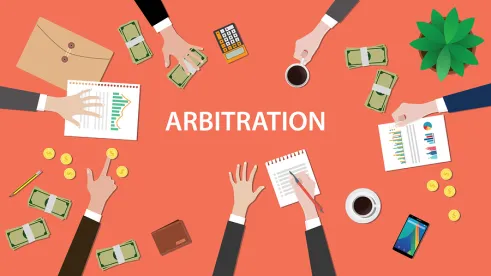This alert follows on our previous report about the Ninth Circuit’s decision in Blair v. Rent-A-Center, Inc. and two companion cases holding that the Federal Arbitration Act (FAA) does not preempt the California Supreme Court’s ruling in McGill v. Citibank. The McGill decision was significant because it determined that an arbitration agreement requiring individual arbitration and precluding a consumer from pursuing claims for “public” injunctive relief in court or in arbitration is unenforceable under California law. In our prior report, we observed that “the stage is now set for possible review of this important issue by the Ninth Circuit en banc or the U.S. Supreme Court.”
The first level of review is now underway.
The defendants in the two companion cases (Blair itself appears close to settlement) recently filed petitions for rehearing en banc with the Ninth Circuit, arguing that the FAA preempts McGill. The petitions assert that federal preemption exists because the FAA protects the right of parties to choose individualized resolution of their claims, notwithstanding contrary state law, and because the “McGill rule” is not a ground “at law or in equity for the revocation of any contract” (the FAA’s savings clause), but instead impermissibly singles out arbitration for special treatment.
The McGill rule, and its interpretation by the Ninth Circuit in the Blair cases, pose a direct challenge to the Supreme Court’s 2011 landmark opinion in ATT Mobility, LLC v. Concepcion, in which the Court held that class action waivers in consumer arbitration agreements are valid under the FAA, notwithstanding California law holding such waivers to be invalid and against public policy. In Concepcion, the Court emphasized that the “overarching principle” of the FAA is to ensure that arbitration agreements are enforced according to their terms. It further instructed that parties are free to limit both the issues subject to arbitration and with whom a party will arbitrate its disputes. Although public injunctive relief can be sought by a single plaintiff without asserting a class action, the relief obtained is tantamount to classwide injunctive relief because it is designed to benefit the general public.
The Blair cases also are inconsistent with numerous FAA preemption decisions issued by the Supreme Court after Concepcion, including two from last term. First, in Lamps Plus, Inc. v. Varela the Court held that classwide arbitration cannot be compelled unless there is explicit evidence that the parties desired that procedure. If the agreement is silent or even ambiguous on that point, courts cannot require class arbitration. That is “[b]ecause class arbitration fundamentally changes the nature of the ‘traditional individualized arbitration’ envisioned by the FAA.” The Court reversed the Ninth Circuit, which held that a class arbitration could proceed since under California contract law ambiguous contracts should be construed against the drafter. The Court held that was an error because “class arbitration, to the extent it is manufactured by [state law] rather than consen[t], is inconsistent with the FAA.” Second, in Henry Schein, Inc. v. Archer & White Sales, Inc., the Court admonished the lower state and federal courts to enforce arbitration agreements according to their terms and not engraft their own public policy exceptions onto the FAA. Both of these opinions extoll the primacy of the FAA.
If the Ninth Circuit denies rehearing in the Blair cases, will the defendants file certiorari petitions with the Supreme Court? Will the Court grant review? Will Blair become the next Concepcion? We believe these questions will be answered in the affirmative. In any event, we will keep you informed each step of the way. This is arbitration law history in the making.




 />i
/>i
